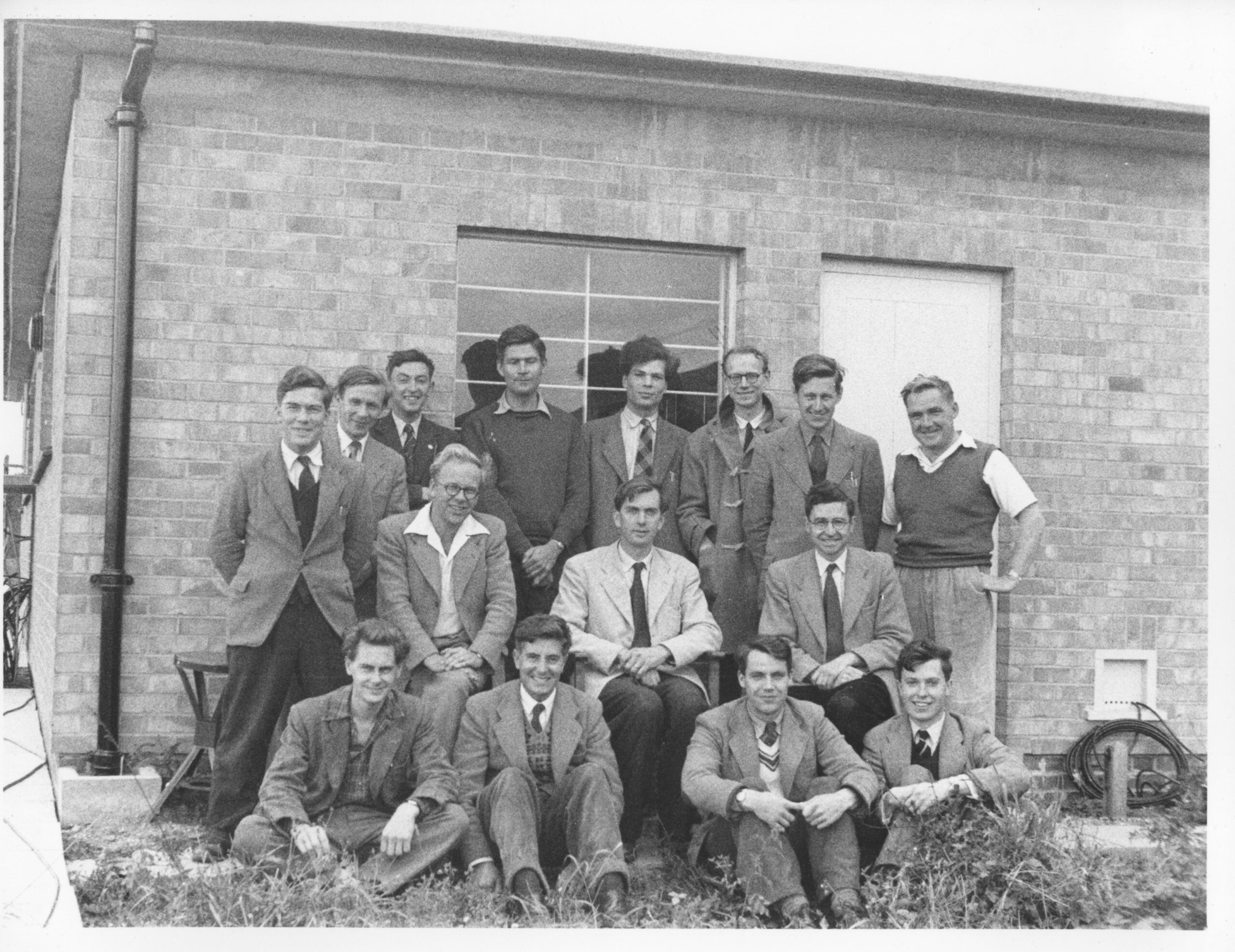Sir Francis Graham-Smith (1923 – 2025)
24 June 2025
It is with great sadness that we learned of the recent death of Sir Francis Graham-Smith at the age of 102. Graham, as we always knew him, was the last of the pioneering group of radio scientists in Cambridge who developed the techniques of the fledgling discipline of radio astronomy immediately after the Second World War.
There was little money for research and so all the radio telescopes were home-made or acquired as requisitioned war items. In 1949, with a pair of Wurzburg radio telescopes used as an interferometer, Graham and Martin Ryle made accurate position measurements of the two brightest radio sources in the sky, Cygnus A and Cassiopeia A, which enabled the former to be associated with a distant galaxy and the latter with a supernova explosion which took place about 250 years earlier. Graham’s name will always be associated with these pioneering discoveries which led to the rapid development of high energy astrophysics.
Graham was involved in all the Cambridge radio telescope projects, mostly concerning low frequency surveys of the sky. In 1964, he moved to the University of Manchester as Professor of Radio Astronomy. There he continued the world-leading long baseline interferometry programmes and used the 250-foot radio telescopes to make many contributions to the studies of pulsars. With Andrew Lyne, he wrote the definitive text-book on pulsars.
In 1982, he was appointed Astronomer Royal and knighted in 1986. In 1985 he was appointed Director of the Royal Greenwich Observatory at Herstmonceux. His major achievement was the setting up of optical observing facilities in the Canary Islands as national facilities for optical astronomy. This involve relocating the 2.5 metre Isaac Newton Telescope and building the 5-metre William Herschel Telescope, both on the summit of the excellent observing site at the Roques de los Muchachos Observatory on La Palma in the Canary Islands.
When he retired in 1980 from these posts, he returned as Director of the Jodrell Bank Observatory (formerly the Nuffield Radio Astronomy Laboratories) and led innovative programmes in radio astronomy. His leadership at Jodrell Bank ensured the Observatory’s continued international scientific excellence – he received funding for the MERLIN interferometric array, including the construction of the 32-m telescope at Cambridge. These endeavours set the scene for Jodrell Bank to play a leading national role in the future international Square Kilometre Array (SKA).
Graham was a Fellow of the Royal Society (1970) and was awarded the Society’s Royal Medal in 1987. He was President of the Royal Astronomical Society (1975 – 1977). Scientifically, in addition to his radio astronomy achievements at Cambridge, he made foundational contributions to our understanding of the interstellar medium, pulsars, and the development of radio telescopes. He remained active through his long period of retirement, few months before his death publishing a short article on fast radio bursts in the RAS’ A&G magazine.
He was a towering figure in British astronomy, whose career spanned much of the history of radio astronomy itself. His contribution to the field was immeasurable. We extend our sincere condolences to his family, friends, and all those who had the privilege to know and work with him.

Radio Astronomy group in the early 1950s. Seated in the middle row from left to right they are Graham Smith, Martin Ryle and Antony Hewish.
